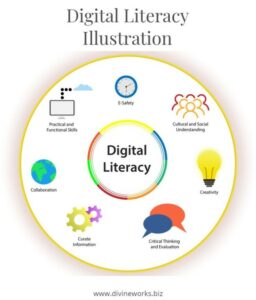Privacy in Digital Learning
There should be an expectation of a reasonable level of privacy within digital learning. The problem is how to define “reasonable.” Regan and Jesse (2019) identified six separate edtech ethical issues related to information privacy, anonymity, surveillance, autonomy, non-discrimination, and information ownership. All of these topics require individual consideration in their own right rather than as part of some general “privacy” heading. For example, the volume of data that personalized learning programs collect on student interactions triggers huge concerns around transparency and consent. That means striking a balance that is capable of ensuring students and parents are aware of how their data is collected will be very important. The schools should also put measures in place to protect the data from access or misuse by students.
Privacy vs. Educational Needs
There are situations where the use of edtech tools might affect student privacy, but is a necessary requirement for educational purposes. Suppose during the COVID-19 pandemic that changed was Burke to online learning; at that time, digital tools were needed to educate students remotely. In those contexts, a fine balance between safeguarding student privacy and meeting the paths of education should prevail. Regan and Jesse (2019) underline how predictive analytics in personalized learning may further limit children’s autonomy, by reducing options based on algorithmic predictions. If schools are to adopt fair, transparent policies genealogically explaining the purposes of collection and use of data, then they will have a say on behalf of parents and students regarding how their data shall be used.
Universal Design for Learning (UDL)
UDL is a framework developed to support diverse learners within all learning environments. From an initial focus on inclusion of students with disabilities, UDL has moved toward the prevention of all forms of exclusion through multiple means for engagement, representation, and expression. The following are specific ways in which UDL practices can be used effectively within digital learning
- Multiple Means of Engagement: Optimize interest and identity, sustain effort and persistence, enhance emotional skills.
- Multiple Means of Representation: Perception, language and symbols, understanding knowledge.
- Multiple Means of Action and Expression: Interaction, expression and communication, strategy development.
Ethics and Digital Tools in Education
Several ethical factors should be taken into consideration during the selection of digital tools in education and their consequent use: noise reduction, avoiding algorithmic bias, transparency in use of data. According to Regan and Jesse, “policymakers and educators must think beyond the rubric of privacy generally and engage specific ethical issues thru their constituent parts”. For example, EdTech surveillance can alter students’ behavior and expectations of privacy. As such, the ethical use of technology must adopt policies by educators and institutions that most consider the protection of student privacy and data security; independent reviews of edtech tools by third-party experts to identify bias and reduce them; guaranteeing students and their parents are aware of how data will be collected and used.
It is in thoughtfully and comprehensively addressing these many different aspects that we can really begin navigating the complex intersection of privacy, educational needs, and inclusivity within digital learning environments.
References
Regan, P. M., & Jesse, J. (2019). Ethical challenges of edtech, big data, and personalized learning: Twenty-first-century student sorting and trackin. Ethics and Information Technology, 21, 167–179. https://doi.org/10.1007/s10676-018-9492-2

